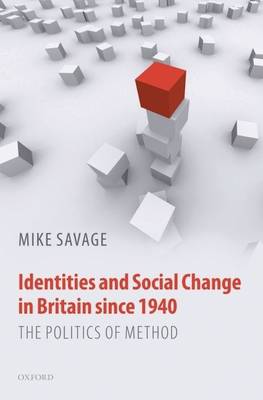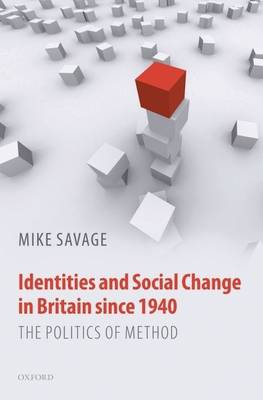
- Afhalen na 1 uur in een winkel met voorraad
- Gratis thuislevering in België vanaf € 30
- Ruim aanbod met 7 miljoen producten
- Afhalen na 1 uur in een winkel met voorraad
- Gratis thuislevering in België vanaf € 30
- Ruim aanbod met 7 miljoen producten
Zoeken
Identities and Social Change in Britain since 1940
The Politics of Method
Mike (Professor of Sociology, University of Manchester) Savage
Hardcover
€ 179,95
+ 359 punten
Omschrijving
Identities and Social Change in Britain since 1940 draws extensively on archived qualitative social science data to offer a unique, personal, and challenging account of post war social change in Britain.
Specificaties
Betrokkenen
- Auteur(s):
- Uitgeverij:
Inhoud
- Aantal bladzijden:
- 300
Eigenschappen
- Productcode (EAN):
- 9780199587650
- Verschijningsdatum:
- 13/05/2010
- Uitvoering:
- Hardcover
- Afmetingen:
- 163 mm x 241 mm
- Gewicht:
- 606 g

Alleen bij Standaard Boekhandel
+ 359 punten op je klantenkaart van Standaard Boekhandel
Beoordelingen
We publiceren alleen reviews die voldoen aan de voorwaarden voor reviews. Bekijk onze voorwaarden voor reviews.








